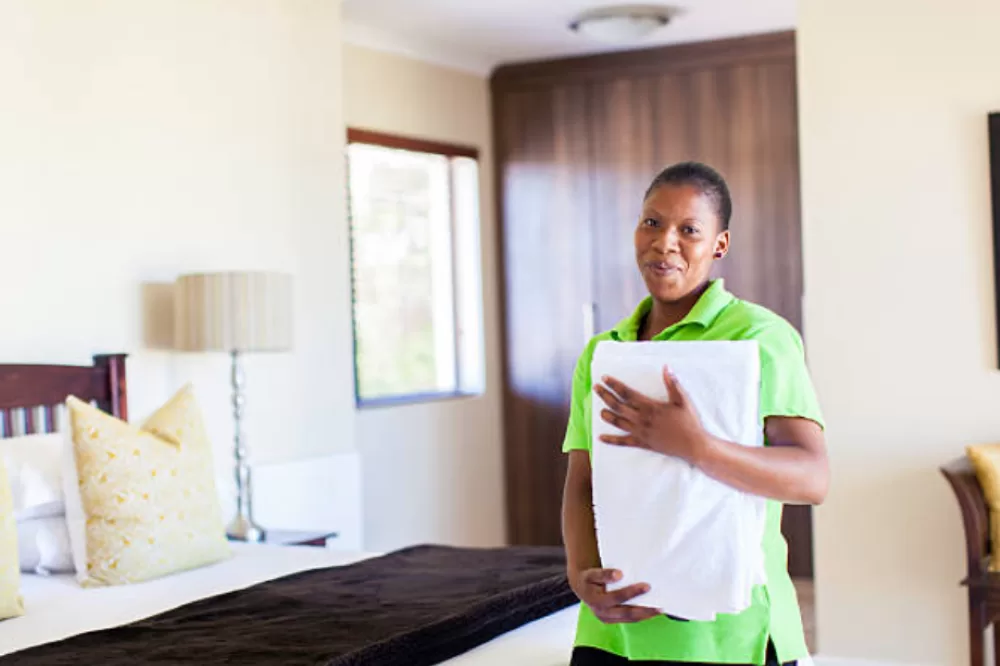7 Effective ways employers can ensure the safety of domestic workers in their homes
Out of 140 countries, South Africa ranked among the least safe with 70% of South Africans responding that they did not feel safe in the latest Gallup poll on global safety released September 2024. South Africa ranked in the bottom three countries, which also included Ecuador and Liberia. Aside from safety against criminals on the street, domestic workers need to also be safe in their place of work.

Ensuring the safety and well-being of domestic workers is not only a legal and ethical responsibility for employers but also crucial for fostering a trusting and positive working relationship. With the challenges highlighted in the recent Sweepsouth Report, particularly around job insecurity and mental health, employers must also focus on creating a safe and respectful working environment. Here are seven practical ways employers can help safeguard their domestic workers while they work in their homes.
1.Organise safety training.
The majority of domestic workers use public transport such as taxis, buses or trains and walk to their place of work. It’s crucial to remind your domestic workers to walk in well-lit areas as often as possible and to try to avoid bushes and passages where someone could hide.Local police stations may also be approached to conduct group talks and training sessions on safety.
It’s important to give your domestic worker a tour of your home to point out any dangers and go over safety procedures with them in detail. Demonstrate the use of household appliances. Make sure they understand how to handle emergencies like locating the fire extinguisher and first aid kit.
- Set up security precautions.
Ensure that your residence is equipped with effective security precautions. Think of putting up security bars and alarms and double-check that every door and window is secured with locks for added safety, for both your household and the well-being of your staff working within the premises. Feel free to provide them with access codes and guidelines when needed to empower them and make them feel secure during dangerous situations. - Ensure that appropriate protective gear is provided.
Make sure your domestic worker has equipment, like gloves and masks if they work with chemicals or cleaning agents. You could also provide knee pads for tasks that require effort to protect them better against potential injuries or strains. Also train them on how to handle these products to prevent any accidents or exposure to substances. - Make sure to guarantee that working hours are fair and that there are rest breaks provided.
Being physically tired can result in errors and mishaps occurring more easily than usual. Make sure your domestic worker is given hours to work and has breaks for rest throughout the day. Fatigue poses a safety hazard, hence it’s crucial to schedule tasks with intervals to prevent exhaustion. - Establish an environment for individuals to report incidents of abuse or harassment.
Unfortunately, many workers experience harassment or mistreatment in their jobs. Let it be known that your household has a policy against such behaviour. Create an environment where they feel comfortable reporting any problems. If your domestic worker expresses feeling unsafe take prompt action to resolve the issue and make sure there are no repercussions, for speaking out. - Ensure their involvement in health and safety protocols.
Your home should be equipped with health and safety measures. This includes having evacuation routes and emergency contact information available in case of a fire or medical emergency situation arises unexpectedly. Make sure that your domestic worker is familiar with these procedures and understands what steps to take during an emergency scenario. Additionally it would be helpful to share a list of contacts such as healthcare professionals and nearby clinics and hospitals - Provide assistance for health needs.
16% of household employees have indicated experiencing a decline in mental well-being. Employers can help by providing emotional assistance and promoting conversations about mental health issues while remaining mindful of stress indicators and offering access to mental health resources or community support groups for their overall welfare.
By implementing these practices, employers can create a safer, more supportive environment for domestic workers, helping them to feel secure, valued, and empowered in their roles. A safe home is not only a better workplace for them but also contributes to a healthier working relationship.





























